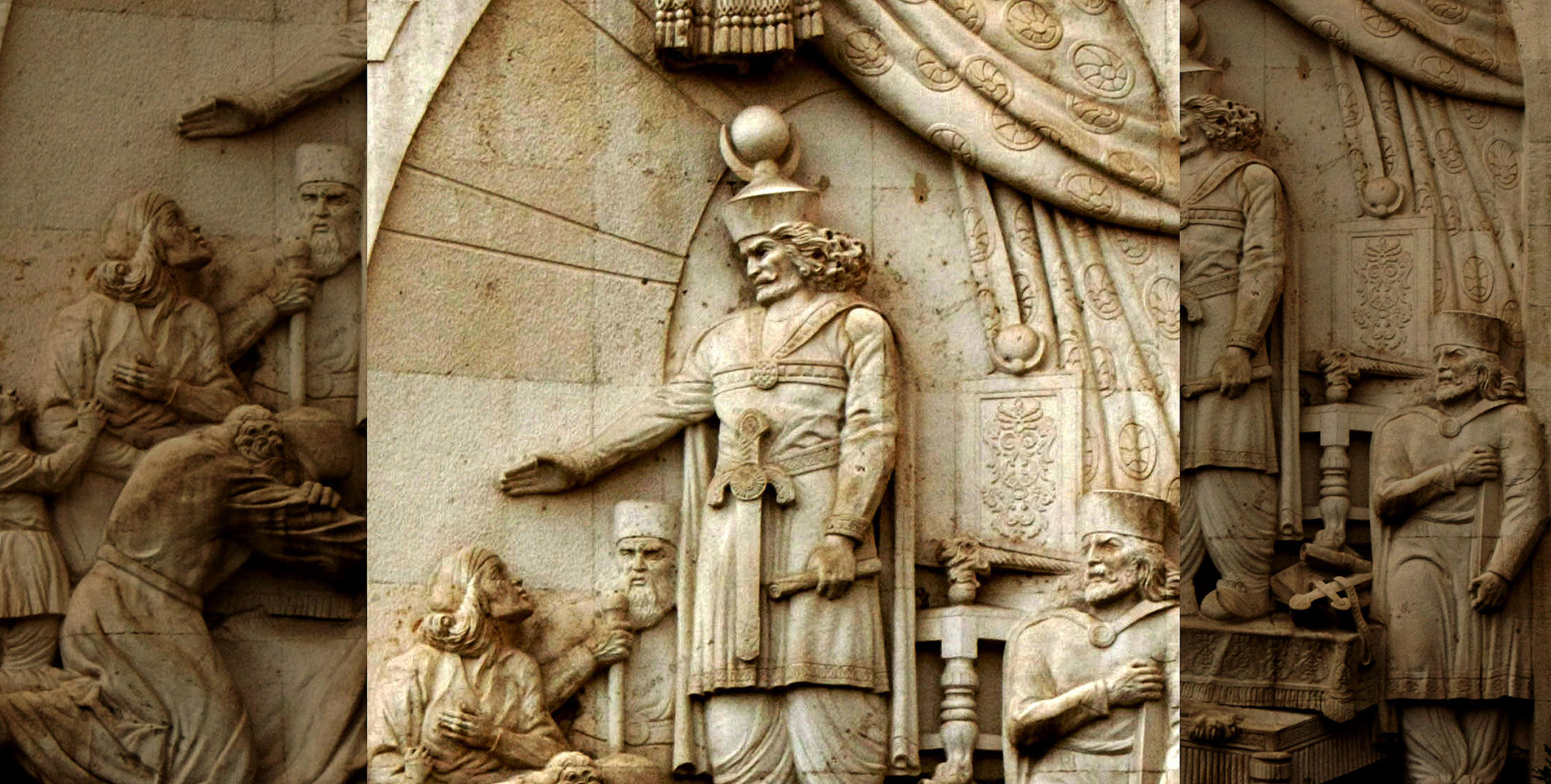
KLC welcomes civil discussion and disagreement about contemporary issues. Thus, the views expressed in our opinion pieces are not official KLC positions but those of the author.
By Jordan Pickering
Cyrus the Great of Persia conquered the Babylonians and began his reign with a generous edict. He decreed that the fallen gods should be restored to their right places across the empire, and he allowed Israel to return from exile and to rebuild their temple in Jerusalem. In recognition of this new era of hope, Isaiah 45:1 announces Cyrus as the Lord’s anointed. As magnanimous as Cyrus appeared and as much as he served God’s purposes, he was enacting a strategy of imperial control in which keeping the gods of the empire happy would also keep the people compliant. In practice, Persia would remain a violent and oppressive occupying force, but one that gave significant governing power and imperial funding to local temples, incentivising priesthoods to lend divine authorisation to the emperor’s rule.
In none of the 2,500 intervening years has empire-building ever been out of style. The western world is mercifully somewhat post-colonial, but we have long since entered the age of the multinational corporation. Much like Cyrus’s world, the game continues to be the making of a great name through pointless global domination, and the mindset remains firmly extractive. And, much like Cyrus, the public has been taught to celebrate the billionaire winners of this game as heroes.
In the modern world, extraction and accumulation are how we measure life’s winners, but this would seem to bring our world into conflict with the tenth of the Ten Commandments – you shall not covet. In our modern economy, do the Ten Commandments still function as the ethos of the good neighbourhood?
The 2024 Nobel Prize in Economics was given, as I understand it, to researchers who have definitively answered the question, “Does wealth create stable national institutions, or do stable national institutions create wealth?” They show that long-term stability is the cause and national prosperity the effect. The Nobel press release explains that colonial powers that imposed extractive institutions upon their conquests created poverty and long-term social upheaval. By contrast:
“The laureates have shown that one explanation for differences in countries’ prosperity is the societal institutions that were introduced during colonisation. Inclusive institutions were often introduced in countries that were poor when they were colonised, over time resulting in a generally prosperous population. This is an important reason for why former colonies that were once rich are now poor, and vice versa.”
This research, if it holds up, offers powerful support for the idea of the common good not just as the dream of starry-eyed idealists, but also a robust pathway for national and economic health. The extraction mentality does long-term harm, whereas an inclusive mentality does long-term good. The West has for decades toyed with the doctrine that unfettered wealth extraction is best for society, but this research suggests that attending to the fabric of our society is essential not just to the health of society but of the economy too.
I have recently come across UK economist and former Citibank trader, Gary Stevenson, who has made it his mission to campaign in favour of higher taxes for the rich. He points out that there is one key time in recent history – perhaps in all of history – in which the middle class flourished, and ordinary people were able to afford their own home even on meagre wages. The USA in the 1950s. While there is surely a complex of reasons for this, he attributes its success to post-war measures to redistribute wealth, i.e., to invest in the common good.
What we have these days is unprecedented levels of wealth extraction by a very small group of elites, a shrinking middle class, stagnant wages and spiralling property prices. Western politics is increasingly dominated by the interests of corporations, if not outright by plutocrats themselves. News channels owned by billionaires suspiciously recode any news story about the common good as evil socialism. Political polarisation has served as a divide-and-conquer tactic that has left countries cheering for their politicians like they do their sports franchises, not caring about how dirty anyone plays, as long as their team wins. And as the cheering dies down, at least in the US, the prize that the public has won is tax cuts for the rich, funded by the stripping of “expensive” inclusive social institutions. Or, by way of recap, our division has bought us a system of imperial wealth extraction that 2024’s Nobel laureates tell us leads to disorder and poverty, at the cost of social infrastructure that supports the wellbeing of society in the long term.
The gospel teaches us to love others as ourselves and to put others’ interests above our own. Christian voting habits would suggest that if we see some value in this in our private domains, we prefer to trust its opposite when it comes to running a country. This Nobel-prize-winning research would suggest that this is a tragic wrong turn, and it lends data support to Jesus’ humble idea that working for the good of everyone means good for you too.